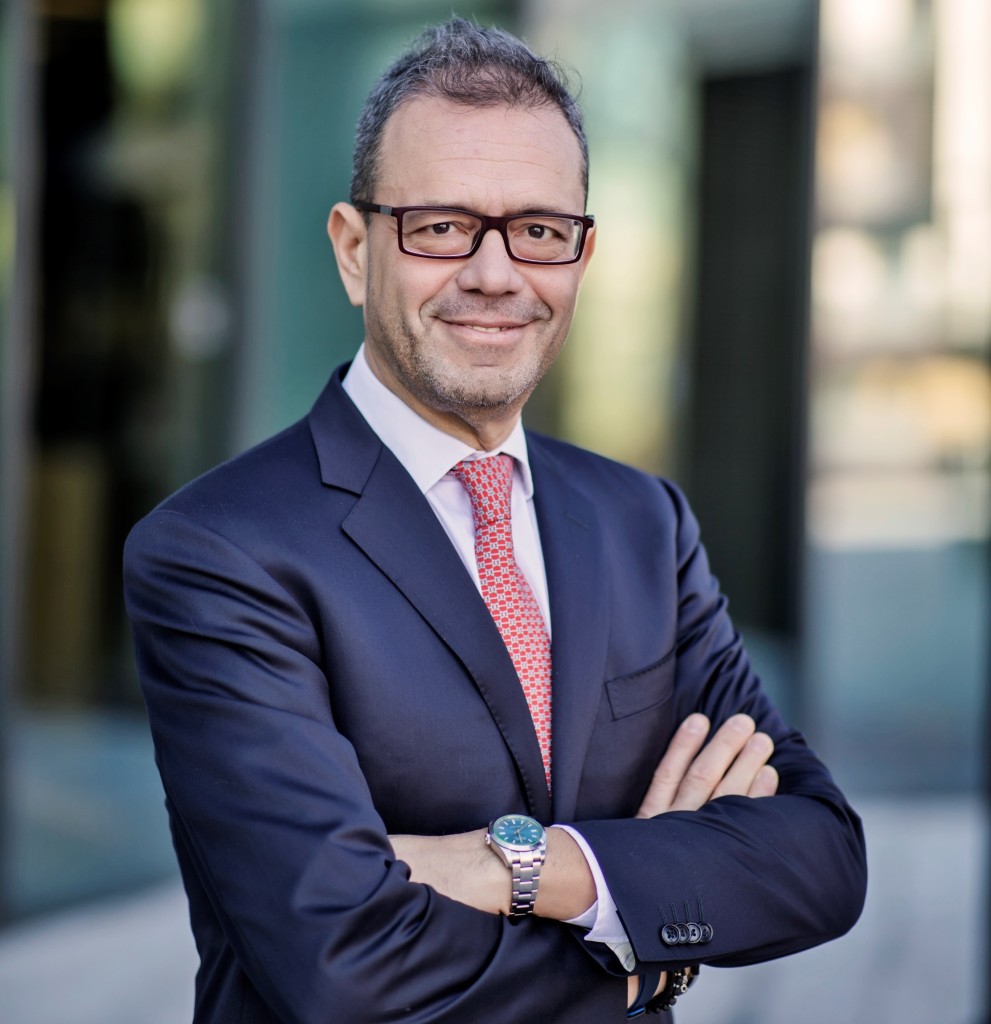“Our bank is ready to help any company that shows interest to open the doors of these markets”. Paolo Iannone, general manager of UniCredit Bank – Czech Republic and Slovakia, ensures this
Paolo Iannone, General Manager di UniCredit Bank, talks in this interview not only about the results obtained and the future challenges, but also about why the Group has decided to launch the Social Impact Banking programme in the Czech Republic and Slovakia.
 UniCredit Bank Czech Republic and Slovakia reported a significant improvement on the profit side in 2018. What are the causes of such a rise?
UniCredit Bank Czech Republic and Slovakia reported a significant improvement on the profit side in 2018. What are the causes of such a rise?
2018 was a very successful year for UniCredit Bank. We took the business opportunities that appeared in the market and achieved excellent business results. The consolidated net profit grew by 18.6% year-on-year to CZK 9.047 billion. The increasing volumes of client transactions, consistent management of credit risk cost, optimisation of operating costs and active management of the bank’s balance sheet structure particularly contributed to such a strong year-on-year increase. The key to growth in retail banking was simple products, regular offers innovations, such as U konto Business or U konto online, and emphasis on the customer experience. Our total number of clients exceeded 700 thousand in both countries, representing a yoy growth of 4.3 %. The volume of lending rose, too, with mortgages reporting a year-on-year increase of 5.8 % while deposits rose by 7.4 % in 2018. Of course significant contribution to our performance was from our Leadership in Corporate Business, both given by our strong position in Large and Medium Companies, participating in several large transactions in structured finance, mergers and acquisitions, export finance, financing of commercial real estate, treasury and leasing and thanks to our very strong penetration with International Companies. We are also very proud of our double digit growth in SME segment, that actually is the segment we are growing the most over last several years.
You’ve been in the Czech Republic and within UniCredit Bank Czech Republic and Slovakia for more than ten years now. How did the Bank change over that time and what opportunities can you see in the years to come?
Over the past ten years, the bank has overcome several challenges and has achieved the leading position on the Czech and Slovak markets. One of the most important challenges was the transformation of UniCredit Bank into a universal commercial bank and financial group and the cross-border merger of the Czech and Slovak banks. We are also proud of the large number of prestigious awards that we have won every year. I would mention, for example, the Global Finance magazine’s award for best services in the area of management and custody of bonds, the first place in the Trade Finance ranking chart of Euromoney magazine, or the award of our corporate banking in the Czech Republic by Global Banking & Finance magazine. What I consider essential is the satisfaction of our clients expressed by the Net promoter score index, I am proud we have the best NPS in the Czech and Slovak markets. On top that we have achieved on both markets where we operate historically the best net profit growth over past 9 years in comparison to market growth.
All this shows that we are going in the right direction. And we want to continue with it. We also want to support the communities where we operate. That is why our group launched the Social Impact Banking program in the Czech Republic and Slovakia. In line with that we want to provide funding to cities, charities and NGOs in both markets, including providing microcredit to entrepreneurs and supporting financial literacy.
What are the opportunities for the international companies expanding to Czech and Slovak markets? Do those markets have any potential?
Long-term potential GDP growth for both countries is estimated at 2 to 3 percent and is hence higher than for Western Europe. Furthermore, macroeconomic stability is well-anchored, keeping risks for businesses relatively low. Most international companies base their activities in Czechia or Slovakia with the purpose of servicing not just the two markets but rather the whole region of CEE. Czech and Slovak economies are known above all as hubs for the automotive industry, but local policies aim to broadening the focus. Investors looking for qualified services with added value are more than welcome. Our bank is ready to help any company that shows interest to open the doors of the Czech and Slovak as well as any European market in which our Group operates. We are a leading bank with rich experiences and broad know-how. We are successful in matching the interests of individual companies and support their ambitions and goals.
Workforce crisis in Czech Republic: how do you evaluate this matter altogether and how does UniCredit deal with it?
There is indeed a labor shortage in Czechia, as demand in the economy remains solid while productivity growth does not keep up. However, we would not call the situation a workforce crisis. Total employment in Czechia is still on the rise, as average retirement age keeps growing and more workers from abroad come to Czechia. Obviously, the labor shortage is worse for some professions than others and companies have to come up with policies to stabilize their key employees. A plus of our bank is that we are creating a friendly atmosphere at the working place, we are adapting the corporate culture to the new generations that are part of our bank. We are innovating the work environment, leisure activities, regardless of the type of profession.
Your Bank also operates in Slovakia, a country that has been part of the eurozone since 2009. From your point of view, how do you view the fact that the Czech Republic has not yet adopted the euro?
For the bank, many processes would get simpler if it is operated with the same currency in both countries. However, we have to respect that the euro adoption is a political rather than an economic decision.
 UniCredit is involved in the Social Impact Banking, what does it involve?
UniCredit is involved in the Social Impact Banking, what does it involve?
As part of the Social Impact Banking Initiative, we provide funding where it has a real impact on society, its development, and helps address social problems. The support is based on four basic pillars – microloans for start-up entrepreneurs, impact financing, or financing in areas with social impact, financial education and volunteering.
The Bank supported the Nave Italia project with Italian Embassy. Why you have chosen that?
I am very happy Czech kids within Nave Italia Project could enjoy an amazing and full of fun expedition on board of the world’s largest sailboat. UniCredit Bank is proud to support this project, to convey a unique experience to selected children after oncological treatment or to children from disadvantaged families while giving hope and encouragement to others. Our long-term commitment within social impact banking initiative is to support and connect communities and raise awareness about them to have a positive impact on society.
UniCredit is often considered an expression of Italy in this country. What is your opinion?
UniCredit is a simple successful pan-European Commercial Bank, with a fully plugged in Corporate and Investment Banking, delivering a unique Western, Central and Eastern European network to its extensive client franchise: 26 million clients. We are a solid bank with strong capital ratios and an unstinting focus on value creation for all its stakeholders through innovative commercial actions, digital transformation, enhanced risk management, transparent corporate governance and key social impact banking initiatives – based on ethics and respect.
by Giovanni Piazzini Albani e Giovanni Usai




